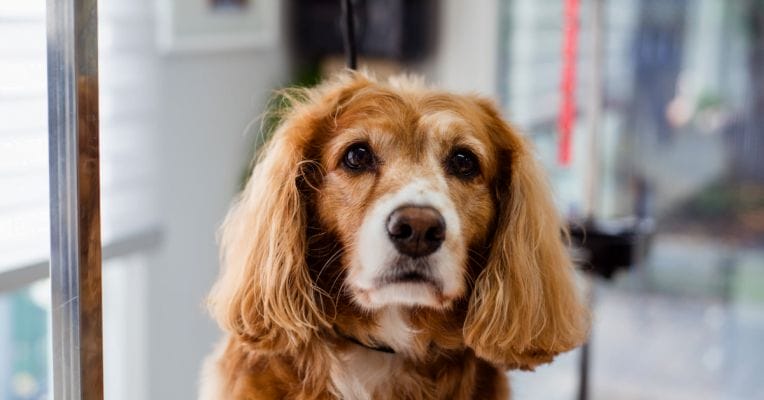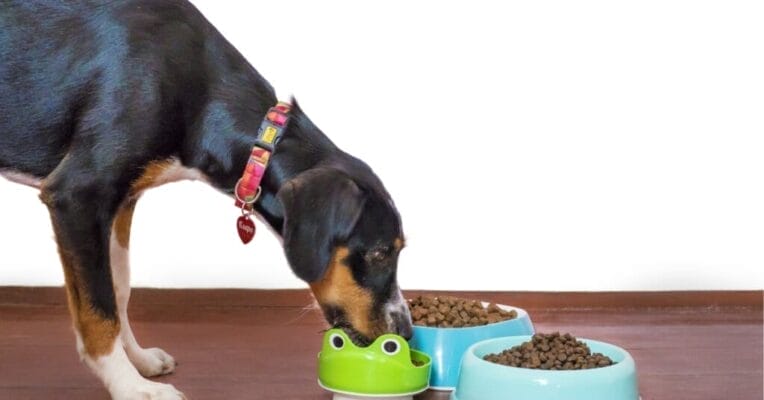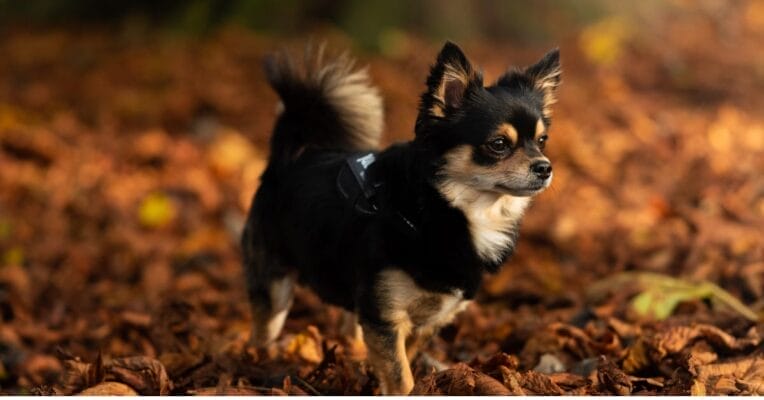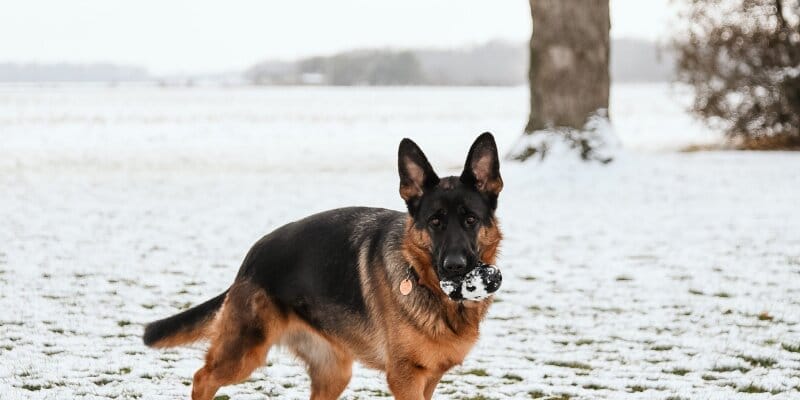How Do I Get My Dog to Chew His Food (Practical tips)
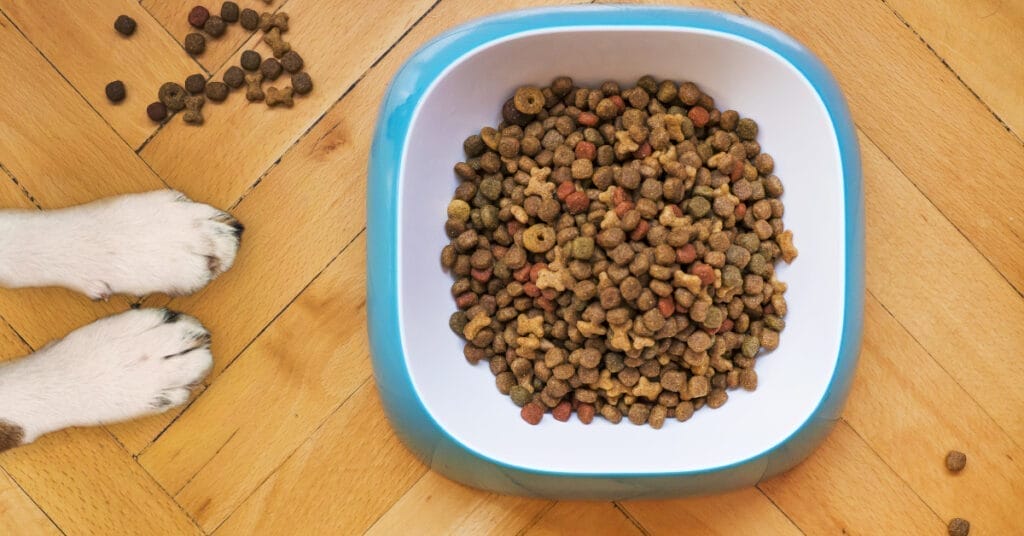
Introduction of “How do I get my dog to chew his food“
“How do I get my dog to chew his food?” It’s a common concern among pet parents, and the good news is that there are ways to encourage your canine companion to savor their meals. In this heartfelt exploration, we’ll uncover the reasons behind the gulp-and-go phenomenon and offer practical tips for transforming mealtime into a more mindful and enjoyable experience for your furry family member.
Why chew dog need food
How do I get why chew dog need food, let’s understand why chewing is essential for our dogs. Beyond the joy it brings to our canine pals, chewing plays a crucial role in their overall health. Chewing helps break down food into digestible bits, facilitating nutrient absorption and promoting dental health. It’s a natural behavior rooted in their ancestral instincts of tearing through meat and crunching bones. So, convincing your dog to chew is not just about slowing down mealtime; it’s about enhancing their well-being.
Unraveling the Mystery of Fast Eaters
Instinctual Heritage: Dogs, by nature, have inherited the instinct to consume their meals quickly. This behavior dates back to their wild ancestors who had to eat swiftly to avoid losing their share to competitors.
Irresistible Aromas: Sometimes, it’s hard for our furry friends to resist the tempting aroma of their favorite meals. The excitement can override their inclination to chew, leading to rapid consumption.
Health Considerations: Dental issues or underlying health problems may contribute to a dog’s reluctance to chew. It’s crucial to rule out any potential health concerns with a visit to the vet if your dog consistently avoids chewing.
How do I get my dog to chew his food
Practical Tips for a Chew-tastic Mealtime:
Introduce Puzzle Feeders: Turn mealtime into a mental workout by incorporating puzzle feeders. These engaging devices require your dog to work for their food, slowing down the eating process and providing mental stimulation.
Ditch the Competition: If you have multiple dogs, consider feeding them separately to eliminate any sense of competition. This allows each dog to focus on their meal at their own pace.
Create a Serene Environment: Establish a calm atmosphere during mealtime by minimizing distractions. Turn off loud appliances, and ensure that your pup has a quiet space to enjoy their food without interruptions.
Explore Different Textures: Experiment with different types of food to discover what encourages your dog chew his food. Wet food or a raw diet might entice them with varying textures and flavors.
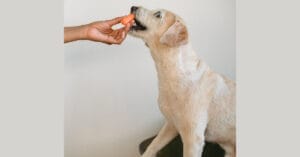
Why doesn’t my dog chew his food
Mealtime with your canine companion can sometimes resemble a race to the finish line, leaving you to wonder, “Why doesn’t my dog chew his food?” or “How do I get my dog to chew his food” It’s a common puzzle that many pet owners find themselves trying to solve Intriguing reasons behind this behavior, offering insights into the canine mindset and providing actionable tips to encourage your pup to embrace the joy of chewing.
“How do I get my dog to chew his food”
Invest in Dental Health: Schedule regular dental check-ups for your furry friend. Addressing any dental issues not only promotes oral health but can also make chewing a more comfortable experience.
Variety is the Spice of Life – and Chew:
Dogs, like humans, have preferences. Experiment with various textures of dog food – kibble, wet food, or even a raw diet. Finding the right texture might entice your dog to engage in more deliberate chewing.
Interactive Toys:
Make mealtime an adventure by introducing puzzle feeders or interactive toys. These devices not only slow down the eating process but also provide mental stimulation, turning meals into a fun and engaging experience.
Why Chew?
Chewing is more than just a delightful pastime. It’s a fundamental aspect of a dog’s overall well-being. The act of chewing aids in breaking down food into digestible pieces, promoting optimal nutrient absorption and contributing to dental health. So, convincing your dog to embrace chewing isn’t just about slowing them down; it’s about fostering a healthier, happier dining experience.
Do Dogs Need to Chew Their Food?
Why dogs need to chew their food
Your dog eagerly waiting for their meal, only to inhale it without a second thought. It raises the question – Do dogs really need to chew their food? or “How do I get my dog to chew his food” In the intricate world of canine nutrition, the act of chewing plays a vital role beyond the sheer joy it brings to our furry friends. In this exploration, we’ll unravel the reasons why dogs need to chew their food and why encouraging this behavior is more than just a matter of preference.
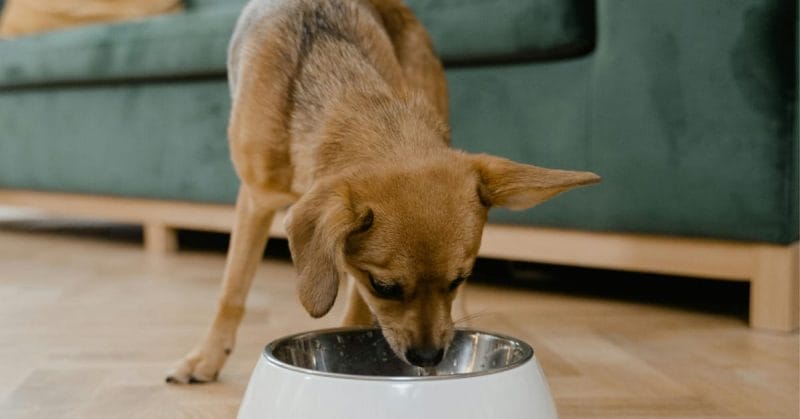
The Digestive Dance
Chewing is not just a delightful pastime for dogs; it’s an integral part of their digestive process. As descendants of wolves, dogs share an evolutionary history that involved tearing through meat and crunching bones. Chewing serves as nature’s way of breaking down food into more manageable pieces, setting the stage for efficient digestion.
Nutrient Absorption
When dog chew his food, it’s not just about savoring the flavor. The mechanical action of chewing breaks down food into smaller particles, facilitating optimal nutrient absorption in the digestive tract. This ensures that the essential vitamins and minerals from their diet are readily available for absorption.
Dental Health
Ever notice your dog’s enthusiasm for gnawing on a bone? Chewing isn’t only about breaking down food – it’s a natural mechanism for maintaining dental health. The act of chewing helps prevent plaque and tartar buildup, promoting strong gums and teeth.
The Gulping Dilemma
Now, you might be wondering why some dogs seem to bypass this essential chewing stage and opt for the “gulp and go” approach.
Inherited Instincts
Dogs, in the wild, had to eat quickly to avoid losing their share of the meal to competitors. This instinct to gulp down food swiftly can linger in our domesticated companions, especially if they’ve experienced food scarcity.
Irresistible Aromas
Some dogs simply can’t resist the tantalizing aroma of their meals. The excitement overpowers the inclination to chew, leading to rapid consumption.
Conclusion:
In the quest to “How do I get my dog to chew his food” , patience and understanding are your greatest allies. Mealtime should be more than a hurried event – it’s an opportunity for your dog to engage their senses, savor the flavors, and promote their own well-being. By incorporating these practical tips into your routine, Chewing isn’t just a behavioral quirk; it’s a fundamental aspect of their digestive and dental well-being. you can transform mealtime into a delightful and mindful experience for both you and your furry friend. So, let your pup revel in the joy of chewing – it’s not just a culinary delight; it’s a cornerstone of their well-balanced canine experience.
How do I get my dog to chew his food
FAQs
Q: Why isn’t my dog chewing his food?
A: There could be several reasons behind this behavior. It might be instinctual, a result of irresistible aromas, or even indicative of dental discomfort. Understanding the root cause can help address the issue effectively.
Q: How do I train my dog to chew his food?
A: Training your dog chew his food involves introducing interactive feeders, puzzle toys, and varying food textures. These tools engage their minds, slow down the eating process, and encourage the development of mindful chewing habits.
Q: Why does my dog throw up and not chew his food?
A: If your dog is vomiting after meals and not chewing, it could be due to rapid ingestion, which may lead to digestive issues. Encouraging chewing, using slow-feeders, and adjusting mealtime habits can help alleviate this problem.
Q: How do I get my dog to stop swallowing treats whole?
A: To prevent your dog from gulping treats, choose appropriately sized treats and encourage them to take smaller bites. You can also use puzzle toys to make treat consumption a more engaging and measured experience.
Q: Why is my dog holding food in her mouth?
A: Dogs might hold food in their mouths for various reasons, such as savoring the taste or even to soften dry kibble. However, if it becomes a persistent behavior, it’s advisable to consult with a veterinarian to rule out dental or health issues.
Q: Why won’t my dog chew bones?
A: Dogs may avoid chewing bones due to dental discomfort, preferences for softer textures, or lack of exposure. Experiment with different types of bones and consult your vet to ensure they are safe for your dog’s dental health and chewing preferences.
Q: My dog doesn’t chew food even with a slow feeder. What can I do ?
A: If your dog continues to gulp food despite using a slow feeder, consider experimenting with different feeder designs. Some dogs may need extra encouragement, so explore various options to find the one that best suits your pup’s eating style.
Q: My older dog is not chewing his food anymore. Is this normal ?
A: As dogs age, dental issues or discomfort may arise, leading to changes in chewing behavior. Regular dental check-ups are crucial for identifying and addressing any dental problems. Additionally, adjusting their diet to include softer food or consulting with a veterinarian can help accommodate their changing needs.
Q: My dog doesn’t chew food even with a slow feeder. What could be the reason ?
A: Dogs may resist chewing for various reasons, such as dental pain, food preferences, or ingrained eating habits. Experiment with different feeder types, textures, and consider consulting with a vet to rule out any underlying health concerns.
Q: My dog seems to be having trouble chewing hard food. What should I do ?
A: Difficulty chewing hard food may indicate dental issues or discomfort. Schedule a veterinary examination to assess your dog’s dental health. In the meantime, consider transitioning to softer or wet food to make mealtime more comfortable for your furry friend.
WRITTEN BY ANAM AHMED

